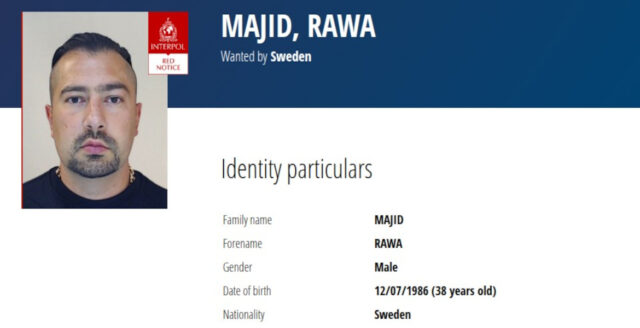Sweden is on track for a new record year in cocaine seizures, with almost 1.5 tons seized in 2024. The dramatic increase, which spans over a decade, reflects a global surge in cocaine production and Sweden’s role as a transit country for drug trafficking.
Despite extensive customs efforts, smuggling remains a major problem.
In 2024, Swedish Customs seized record amounts of cocaine. Between 2014 and 2023, cocaine seizures increased by over 4,000%, says Martin Norell, an expert at Swedish Customs, in an interview with the Bonnier newspaper Dagens Nyheter.
The alarming increase is part of a long-term trend: from 810 kilos in 2022, to just over a ton in 2023, and in 2024 just under 1.5 tons.
Peter Moilanen, Director of the Drug Policy Center, explains that the trend is not solely due to domestic consumption.
– The increase reflects a growing European market and Sweden’s role as a transit country, where cocaine is smuggled to other countries, he writes in a post on X.
Ökade beslag kokain.
Beror antagligen på tre faktorer;
1) Ökad global produktion där Sverige är än mer transitland,
2) Ökad inhemsk konsumtion (här, till skillnad från tex cannabis, ligger Sverige på EU-medel)
3) Effektivare tull med mer resurser tar merhttps://t.co/pdDMYFn83a— Peter Moilanen (@petermoilanen) January 3, 2025
Global production at record levels
Global cocaine production is currently reaching record levels, increasing both supply and trafficking to Europe.
Sweden has become a major transit point for the drug, putting pressure on Swedish Customs and other authorities to manage the inflow. Smuggling networks are using increasingly sophisticated methods to avoid detection.
The port of Helsingborg has been identified as one of the main entry points for cocaine smuggling into Sweden and serves as a central hub in the logistics of the drug trade, with large volumes hidden in containers and then distributed further within the country and Europe.
Although Helsingborg has become less of an attractive port for smugglers, Sweden still works well as a transit country, according to Martin Norell.
– When we clog up, smuggling moves on. It is like a living organism, it constantly finds new weaknesses.

More seizures – but problems remain
Despite record seizures, major problems remain for Swedish Customs. Smuggling networks take advantage of Sweden’s strategic location and work with advanced technology and well-organized logistics networks. These factors make it difficult for Customs to stop the drugs.
According to Swedish Customs, cooperation between Swedish and international authorities is crucial in order to counter the threat. At the same time, the agency emphasizes that more resources are needed to effectively deal with the increasing smuggling.
The current record year shows a clear flow of increasing cocaine smuggling to and through Sweden. With a growing international drug market and Sweden’s strategic role as a transit country, the problem remains serious.
The government has not yet commented on how it intends to strengthen resources to address the increasing scale of smuggling.









